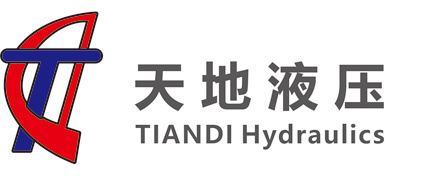GET THE LATEST NEWS FROM THE COMPANY
NEWS CATEGORY
Understanding Compact Hydraulic Units: A Key Component in Industrial Applications
Published:
2025-04-26 13:40
Compact hydraulic units are increasingly becoming a vital component in various industrial applications, particularly in sectors that require efficient and powerful hydraulic solutions. These units are designed to combine hydraulic power generation and control into a single, space-efficient system. They are particularly advantageous in environments where space is limited but performance cannot be compromised.
The primary function of a compact hydraulic unit is to facilitate hydraulic power for machinery and systems, enabling them to perform various tasks such as lifting, pushing, or moving heavy loads. These units typically consist of a hydraulic pump, reservoir, control valves, and other necessary components, all neatly packaged into a compact form. This design not only saves space but also simplifies installation and maintenance, making them an ideal choice for modern industrial setups.
One of the notable benefits of using compact hydraulic units is their energy efficiency. With advancements in technology, these units are designed to optimize hydraulic power consumption, resulting in lower operational costs and reduced environmental impact. This efficiency is crucial in industries where energy costs can significantly affect overall profitability. Additionally, compact hydraulic units often feature advanced control systems that allow for precise operation, enhancing the overall performance and reliability of the machinery they support.
Versatility is another hallmark of compact hydraulic units. They can be employed in a wide range of applications, from manufacturing and automation to construction and agriculture. For instance, in manufacturing, they can drive hydraulic presses or conveyor systems, while in construction, they may be used in excavators or other heavy machinery. Their adaptability makes them an essential choice for various industry needs.
Moreover, the integration of compact hydraulic units promotes modular design in industrial equipment. This modularity allows businesses to customize their hydraulic systems according to specific operational requirements, enhancing overall productivity. As industries continue to evolve, the demand for such flexible and efficient hydraulic solutions will likely increase.
In summary, compact hydraulic units play a crucial role in the modern industrial landscape. Their space-saving design, energy efficiency, and versatility make them an attractive option for businesses looking to enhance their operations while maintaining cost-effectiveness. Understanding the functionality and benefits of these units is essential for professionals in the field, as they continue to be integral in driving innovation and efficiency in various applications.
The primary function of a compact hydraulic unit is to facilitate hydraulic power for machinery and systems, enabling them to perform various tasks such as lifting, pushing, or moving heavy loads. These units typically consist of a hydraulic pump, reservoir, control valves, and other necessary components, all neatly packaged into a compact form. This design not only saves space but also simplifies installation and maintenance, making them an ideal choice for modern industrial setups.
One of the notable benefits of using compact hydraulic units is their energy efficiency. With advancements in technology, these units are designed to optimize hydraulic power consumption, resulting in lower operational costs and reduced environmental impact. This efficiency is crucial in industries where energy costs can significantly affect overall profitability. Additionally, compact hydraulic units often feature advanced control systems that allow for precise operation, enhancing the overall performance and reliability of the machinery they support.
Versatility is another hallmark of compact hydraulic units. They can be employed in a wide range of applications, from manufacturing and automation to construction and agriculture. For instance, in manufacturing, they can drive hydraulic presses or conveyor systems, while in construction, they may be used in excavators or other heavy machinery. Their adaptability makes them an essential choice for various industry needs.
Moreover, the integration of compact hydraulic units promotes modular design in industrial equipment. This modularity allows businesses to customize their hydraulic systems according to specific operational requirements, enhancing overall productivity. As industries continue to evolve, the demand for such flexible and efficient hydraulic solutions will likely increase.
In summary, compact hydraulic units play a crucial role in the modern industrial landscape. Their space-saving design, energy efficiency, and versatility make them an attractive option for businesses looking to enhance their operations while maintaining cost-effectiveness. Understanding the functionality and benefits of these units is essential for professionals in the field, as they continue to be integral in driving innovation and efficiency in various applications.
compact hydraulic unit
previous page
Related news

